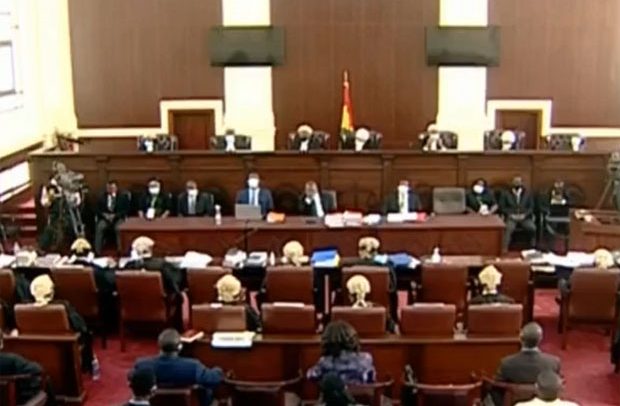The Supreme Court has sent a clear message to Speaker Alban Bagbin: the case challenging his ruling on four vacant parliamentary seats is a constitutional issue, not a political party case.
Chief Justice Gertrude Torkonoo led the bench in dismissing the objection from Bagbin’s legal team to Justice Yao Gaewu’s presence on the panel, labeling it “misconceived”.
The controversy began when Bagbin declared four parliamentary seats vacant after the incumbents decided to contest the upcoming elections under different political parties.
This decision sparked tensions, leading to a rowdy parliamentary session where the Majority Caucus walked out of the chamber.
The Supreme Court temporarily halted the enforcement of Speaker Bagbin’s ruling on October 18, allowing the affected MPs to retain their seats for the time being.
Bagbin’s counsel, Thaddeus Sory, raised an objection suggesting that Justice Gaewu’s alleged affiliation with the New Patriotic Party (NPP) could compromise his impartiality.
However, Chief Justice Torkonoo emphasized that the court’s focus is on the constitutional implications of the case, not party politics.
In a separate motion, Attorney General Godfred Yeboah Dame requested that paragraphs 21 and 49 of the Speaker’s affidavit be struck out, arguing that these statements were “scandalous” and irrelevant to the case.
After hearing the objection from Speaker Bagbin’s counsel on Wednesday, October 30, the Chief Justice adjourned proceedings briefly to consider the matter before returning to reject the application.
Justice Gaewu will remain on the panel, and Chief Justice Torkonoo noted that this objection would be considered in the final judgment.
Additionally, Joe Ghartey, representing NPP Majority Leader Alexander Afenyo-Markin, was barred from making a preliminary statement during the proceedings.
The court reprimanded Ghartey for breaching protocol by allowing junior counsel to open the defense.
The hearing will continue, as the court moves forward with arguments on the legality of the Speaker’s decision regarding the four disputed parliamentary seats.
This case has significant implications for Ghana’s parliamentary system and the upcoming elections.
-BY Daniel Bampoe


